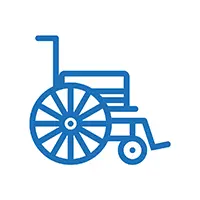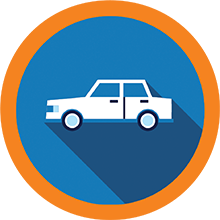Every driver on New Zealand roads must sit and pass the standard theory and practical driving test. The stages are the same for everyone but you’re not on your own. There is support and information available to help get driving on the road.
Your quick guide to getting on the road (DOCX, 247 KB)
The following programmes can help make it happen
- I.Drive Learner Licensing Programme (external link) help disabled young people to get their learner’s
- getDriving programme support (external link) people living with Cerebral Palsy to gain their restricted
- Blue Light Youth Driver Navigator Programme (external link) supports locals aged 16 to 24 to get their licence free of charge in the Waikato and Bay of Plenty
- Drive Go (external link) is the official learn to drive mobile app to help people pass their restricted licence
Pathways Awarua have worked with New Zealand Transport Agency to help - New Zealand Transport Agency (external link) describes in detail the steps involved to getting your license and any endorsements or conditions that may apply.
What are the stages to getting your license?
- Start: Learning the road rules
- Learner’s: Passing the theory test of skills and practice
- Restricted: Passing the practical test to drive solo
- Full: Passing another practical test to drive with full licence privileges.
I have a temporary disability; can I still drive?
While having a temporary disability may not stop you from driving, you should consider your safety and that of those around you. Talk to your GP about how your driving ability will be affected and how long for. You should also consider your car insurance policy and whether you’d be covered if you had an accident while driving with a temporary disability.
I have poor vision; can I still drive?
If you have low or monocular vision, it is likely you’ll have a condition on your licence saying that you need glasses or contact lenses. All drivers need to have at least 140 degrees of peripheral vision and have a minimum of 6/12 eyesight for a Class 1 licence, fortunately there are technologies available to help! It may also be worth contracting a Driver-Trained Occupational Therapist (DTOT) who can advise on what aids would help you.
Suggestions:
- Add two convex side mirrors
- Add a panoramic rear-view mirror to eliminate all blind spots
- Try adding reversing sensors and cameras to your vehicle
- Always keep windows clean and clear
- Don’t direct air conditioning towards your face as it dries out eyes quicker
- Use a larger following distance in slow traffic
- Utilise sound to know what’s going on around you, this means less radio and music
- Look after your eyes – If you start to feel irritated or tired, take a break.
I am Deaf/hard of hearing; can I still drive?
There is no law stopping persons who are registered deaf or low hearing from driving. Good driving skills and an awareness of the environment are very important, Waka Kotahi NZ Transport Agency (NZTA) suggests deaf drivers may want to consider purchasing extended mirrors/features to help with everyday driving; however keen visual scanning supplemented with aids such as a visual blind spot detection (flashing light in side mirror when a vehicle comes alongside) are also valuable.
Suggestions:
- Add additional mirrors to cover blind spots
- Try adding a reversing camera rather than simply using audible reversing sensors.
Last updated on Monday, 11 September 2023














